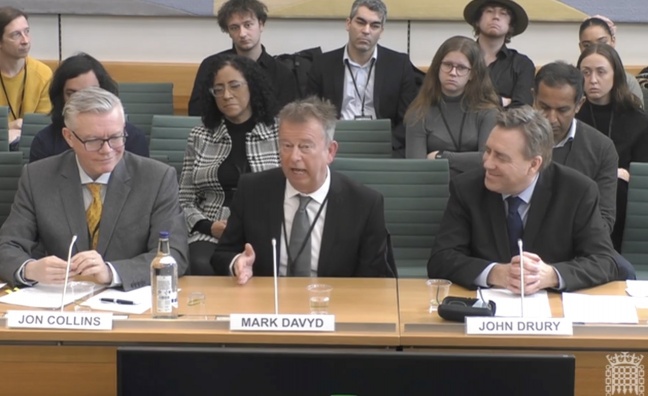The grassroots sector has been struggling in recent years, with the impact of Covid and the cost-of-living crisis driving many to closure.
In his current Music Week column, Music Venue Trust CEO Mark Davyd reported that there have been 67 emergency cases for its experts so far in 2024. The organisation said that 125 venues closed last year – equivalent to a tenth of the industry.
The Culture, Media and Sport Committee of MPs held a session as part of its inquiry into the ongoing crisis for grassroots music venues.
While those giving evidence suggested a reduction in VAT on tickets could help the sector, there was a widespread acceptance that it was unlikely to be implemented by a Chancellor of any government.
Instead, attention turned to the high-profile Music Venue Trust campaign to introduce a voluntary levy of £1 on the gross value of tickets sold at arenas and stadiums to support the grassroots sector.
Different versions of this model could see the money come from fans paying for the £1 on tickets, or directly from the arenas themselves as a redistributive method. The industry is seeking a voluntary system rather than a mandatory government-led approach.
While a 3.5% concert ticket levy in France brings in €200 million for small venues, Mark Davyd pointed out that his organisation was not even seeking support on that scale. For just a pound on each ticket, he suggested that the available fund would enable small venues to “take risks with their programming and really give artists the first step on the ladder they need”.
“I think we have a long history of experimentation, of taking cultural risks, and of our artists being supported at the grassroots level by people who just believe in music in their communities,” Davyd told MPs.
The Music Venue Trust stalwart recalled his own role in that ecosystem, which helps to create arena and stadium acts.
“We’re holding this hearing on a great day for me, it’s the 30th anniversary of the day that Oasis played in my club in Tunbridge Wells,” he recalled, while admitting that the agent at the time insisted that Oasis be on the bill (Davyd had just wanted headliners Whiteout).
Crucially, the proposed levy fund support would be made available for artists, promoters and venues.
“One of the biggest concerns, frankly, is that artists can't afford to tour,” said Mark Davyd. “With the lengths of tours we are seeing it’s not just that venues aren’t there to play in, it’s also that venues are standing empty when they could be putting on bands because bands cannot afford to put on the show.”
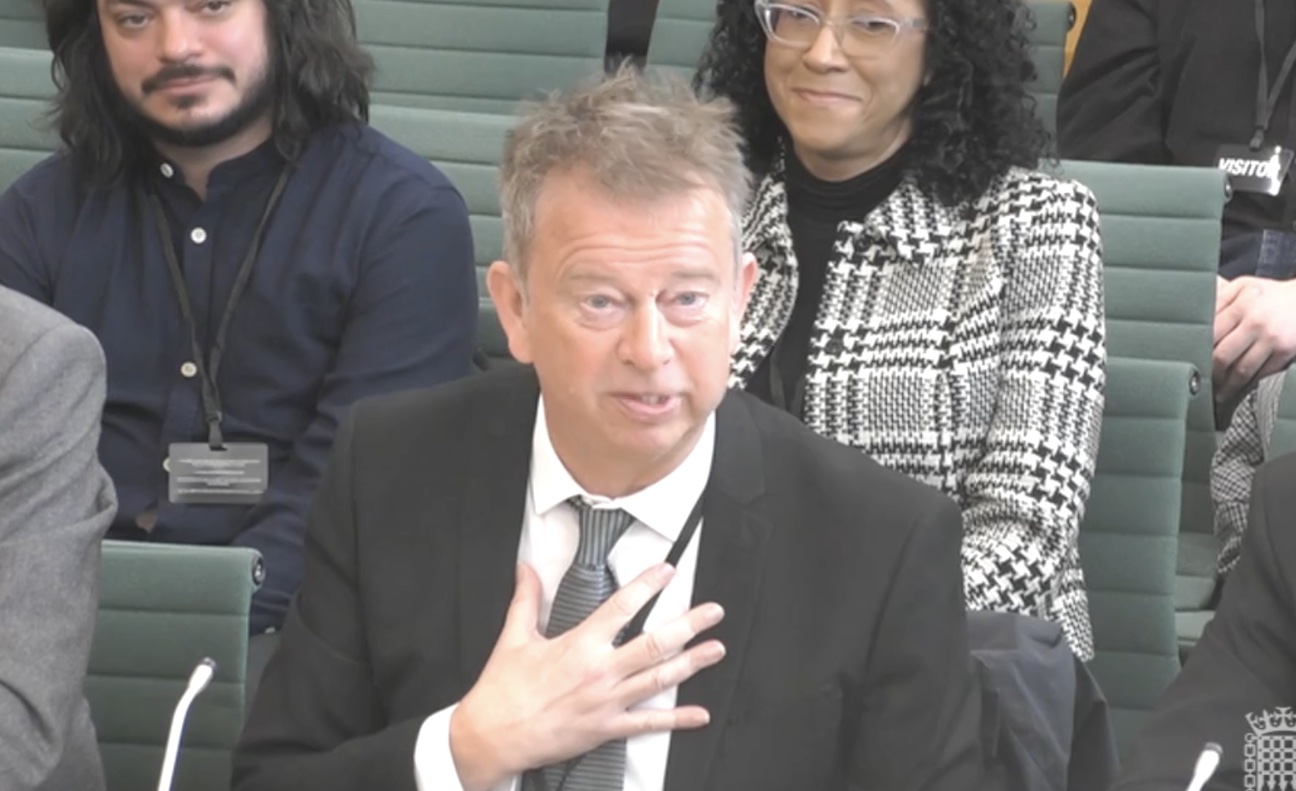
Despite the congenial atmosphere of the opening session, there was no agreement on the idea of a levy and who would drive it – industry, artists or another organisation.
John Drury, chair at National Arenas Association (NAA), and vice-president and general manager at OVO Arena Wembley, said: “The reality of a pound a ticket [levy] for us, given that many of our venues are managed on behalf of private landlords, city councils and charitable trusts, the impact would be something like a 20% cut in our EBITDA [profit]. So it’s not a few grains of sand, it’s quite significant.
“It’s more that this is a problem for the ecosystem, the industry as a whole, and it goes right through at a live level to artists, managers, agents, promoters, venues and anybody else associated with the system. We are all interdependent. So we see it like that – it’s not for the venues to pay or for the promoters to pay, it’s an industry solution that we need to find.”
Committee member Damian Green, who’s previously asked sharp questions on music inquiries, questioned whether arenas were comparable to top-flight football.
“It’s a bit like the Premier League,” suggested Green. “They are in the middle of a row with the rest of the football pyramid about how much of their golden goose can be shaken down to keep other clubs alive.”
Drury demurred and said that not all 24 arena members were regularly staging lucrative superstar tours.
“It might look like the cash cow,” he said. “I think the analogy … would be slightly different.”
A £1 levy on arena and stadium tickets would give us a sustainable ecosystem
Mark Davyd
Apart from the VAT cut, NAA members’ favoured option is the Enter Shikari model, where the artist took a lead in the £1 per ticket donation to the Music Venue Trust to support the grassroots sector. In that instance, Wembley chose to match the band’s donation from their arena gig.
“I felt it was a gesture, we thought it was the right thing to do because it was the first time a band had come into Wembley with that mindset of, ‘We’re going to donate money to the MVT’,” Drury told MPs. “We’re already close to the MVT and we have an ongoing relationship.
“For an artist or a band to add [a donation]... the important thing is that flows through and if it is a pound it comes out the end as a pound as well, so that – managers, agents, promoters – nobody takes a cut on it, there isn’t a cut on the booking fee. It comes out the way it went in.”
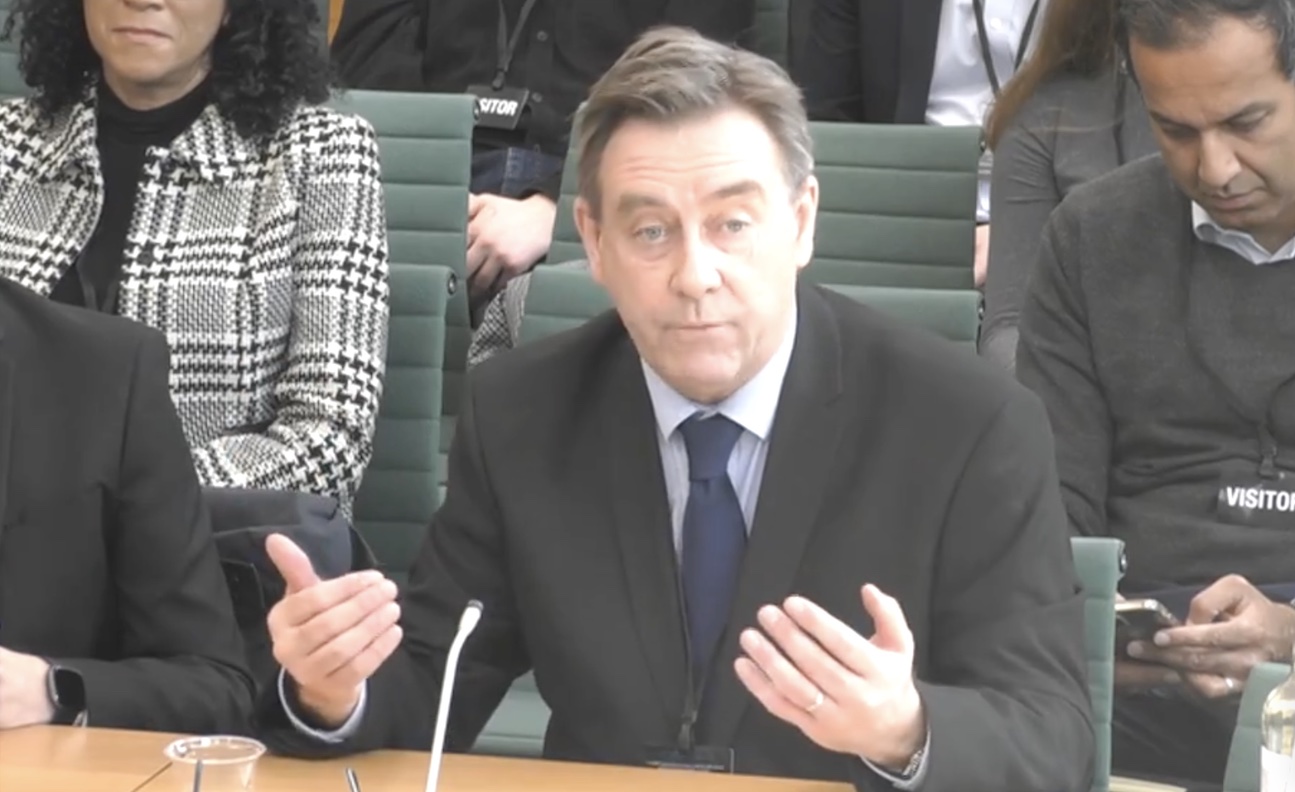
But there were concerns that an artist-led initiative would not be a stable funding solution.
“Artists are able to make a decision and everybody will flow behind them,” Davyd told MPs. “However, we think it’s much broader than that... We think that everybody you’re going to see today [at the hearing] has a role to play in accepting that a £1 charge on a ticket is desirable, makes a sustainable system and can be invested wisely and support our grassroots.
“We’re going to hear a lot that the artists need to make this decision because we have the example of Enter Shikari. The reality is that in our industry the artist is not always consulted on every levy. The reality is that, in fact, promoters and venues may frequently try to construct a model that is profitable around a tour, in which the artist does not know about the transaction fee, or the fulfilment fee of the restoration levy, or the print-your-ticket-at-home charge.”
It’s not for the venues to pay or for the promoters to pay, it’s an industry solution that we need to find
John Drury
“What we need is a consensus of consent,” added Davyd. “We need everybody that you’re going to see today to say ‘Yes, we’re going to try to make this happen collectively, collaboratively, and we will end up with a charge on every ticket.’”
“I accept that we all need to do more as an industry,” replied Drury. “It’s really important we all come together to find the right solution. For me, a pound on a ticket is not the way because that’s extra to the customer. We’ve got the wherewithal within the industry to find a way to make it work.”
Asked if, like football governance, there should be a fan-led review of local music, Davyd said: “I think fans’ and audiences’ voices, especially from our local communities, are massively under-represented and I would strongly support a fan-led review.”
FUNDING DISTRIBUTION
The Music Venue Trust already distributes emergency funds for grassroots venues. Davyd welcomed the proposal by trade body LIVE for the formation of a trust to distribute funds from the proposed levy.
Jon Collins, chief exec of LIVE, told MPs: “We want to create a LIVE Trust to be a charitable arm of our organisation, a receiving house for those funds, to be a focal point for those industry efforts to raise funds, and then push that money back out to the experts who know where it needs to be spent and avoid duplication.
“We think we can create a vehicle to receive funds and then also make sure those funds are spent by the experts in the right places that will have the most impact.”
Collins reiterated the preference for an industry-led solution rather than a statutory approach.
He added: “On the statutory levy there’s a concern as to who would set the rate, how would the money be distributed. There are criticisms of the Arts Council. [With their grassroots scheme], overnight that was taken from being a grassroots music venue scheme to being a grassroots music scheme with no more money included in the fund. That is the sort of instability that we do not want as an industry.
“Certainly there has been consensus around the LIVE board that there is a way forward to develop an industry-led solution which is based on that partnership approach.”
Davyd agreed that such a system would give LIVE trade body members a stake in the process.
“These are significant funds that could be raised by a £1 levy on arena and stadium tickets,” he added. “The reality is that it would probably be the most significant change made to our grassroots venues in the seven decades that they have been open. What it would do is give us a sustainable ecosystem at that level, that effectively then creates a sustainable ecosystem for everyone else. I think it’s great what’s been done, but there is much much more that must be done, frankly.”
TIKTOK STARS GO GRASSROOTS
Where there was more agreement was on the role of TikTok and streaming, as opposed to the older industry model of ‘paying your dues’ live before a breakthrough.
“We see artists that have played the arena for the first time that have become names on TikTok or YouTube,” said Drury. “So that streaming and digital way of accessing new artists and new music is absolutely real. It is a surprise sometimes when we host an artist, we think, ‘They haven't played a show before and they’re in an arena’. It has changed, but the old way – if you don’t mind me saying – is still there and very valid. It’s all changed… I would say it’s positive.”
“The number of breakthrough TikTok acts that are now going back to the grassroots in order to build an audience, and in order to build their skills, is a remarkable turnaround in the last two or three years,” said Davyd. “We are overrun with people who have had a hit on TikTok desperately now trying to build their grassroots audience. That gives them a sustainable career.
“It’s a big thing in our sector for people to now be going out on tour, having jumped forward and realised, ‘Wait a minute, I don’t have the deep connection with my fans that I get from being in a room with 250 other people.’”
LIVE ECOSYSTEM
In later evidence sessions for the Culture, Media and Sport Committee, industry figures spoke about the wider impact of grassroots losses.
Anna Moulson, co-chair, Association of Independent Promoters, noted the effect on her members of venue closures including for the in-house programming team at Bath Moles.
“It’s just the impact on that ability to come together and highlight music in live, in the industry, and keep it rolling,” said Moulson. “Over lockdown, obviously, we couldn’t do our jobs, that gave us the idea and the understanding of how important a venue is as a platform. [Livestreaming] was very difficult to make money out of. The venue is the heartbeat and that’s where we belong as promoters.”
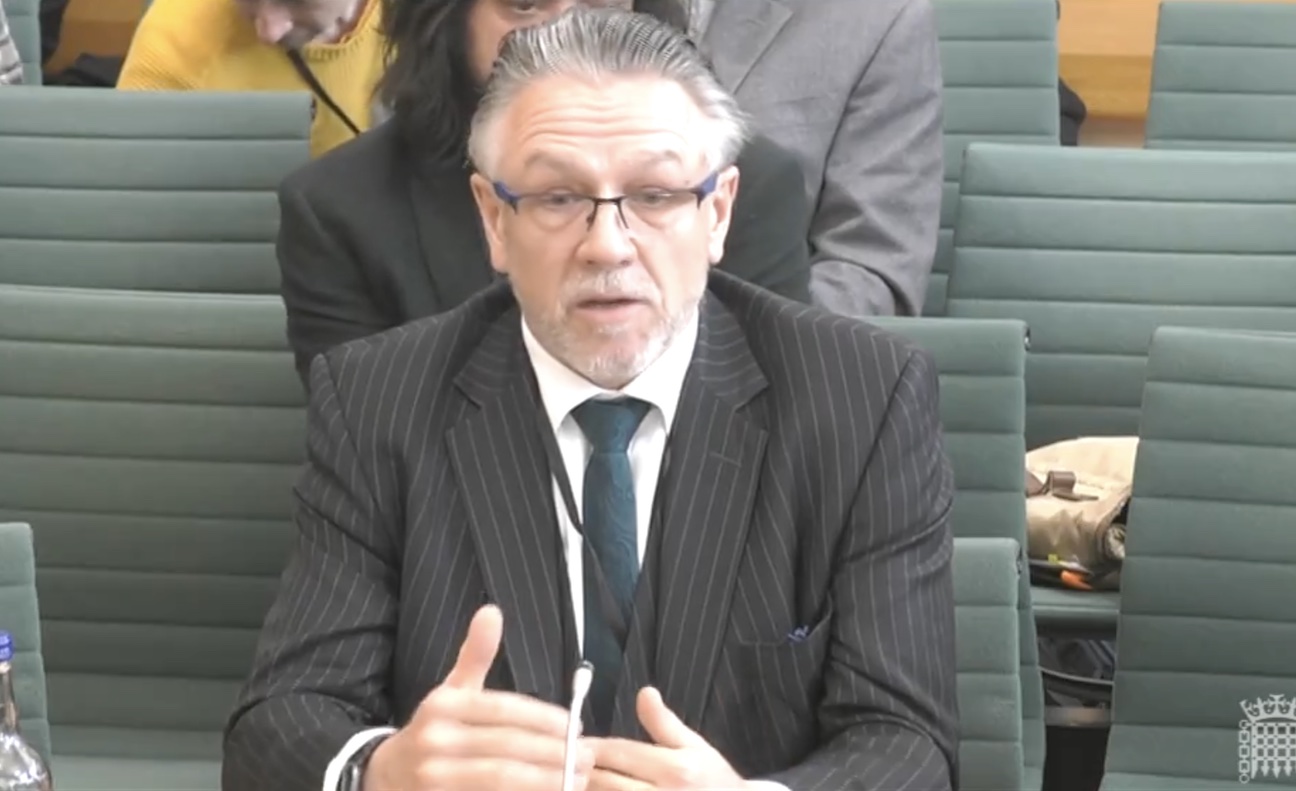
Stuart Galbraith, vice-chair, Concert Promoters Association, and chief executive, Kilimanjaro Live, said: “The closure of grassroots venues has several impacts on us. First of all, it’s more difficult for us to break new artists because there are fewer venues that we can go out and play.
“Secondly, with the escalating costs of those venues, it’s more difficult to actually make those shows viable and, indeed, if they’re not viable they can’t take place.
“Thirdly, it restricts the talent stream for us in the form of personnel, rather than artists. If you look at our membership across the CPA, most of the 60 members either have principals or major promoters that started off as promoters in grassroots venues. I certainly was one of those, I was the social sec at Leeds University. Our two main directors both started as local venue promoters. So if there are no local venues, then there won’t be the development of those local venue promoters.”
DIVERSITY OF GENRES
In the third of the sessions, David Martin, CEO, Featured Artists Coalition, appeared alongside English Teacher's Lily Fontaine and MMF vice-chair Kwame Kwaten, where all drew attention to the severe economic pressures currently faced by touring artists, and particularly the rising costs incurred when playing live.
David Martin said: "Today, we are grateful to the MPs who took the time to hear the artists' perspective on the grassroots music ecosystem. There is already widespread agreement that the economic model at this level of live music is currently unsustainable. However, it was particularly important that members of the Culture Select Committee heard about the pressures currently faced by artists. Ultimately, it is their performances that the live industry is built on, and the artist-fan relationship which the live ecosystem monetises. Only by placing control in the hands of artists can we hope to drive the sector forward."
“The scene that I operate in, the venues and the grassroots music scene are the reason why it operates,” said Lily Fontaine. “It would be non-existent without it because the type of music created within the guitar, indie sphere is fuelled by local communities. It’s people helping each other.”
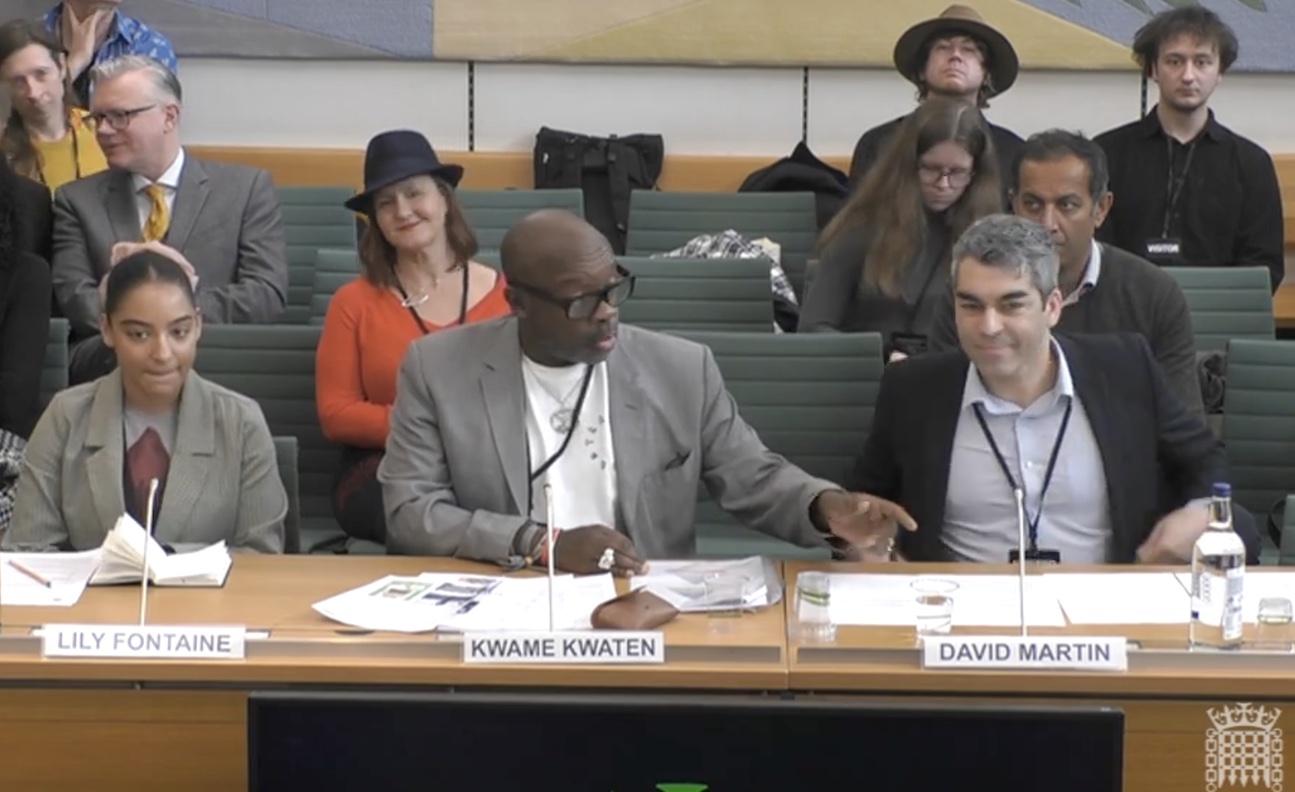
In the final session, there was also a question from MP Rupa Huq about whether grassroots venues were doing enough on diversity of genres.
“Grime and drill definitely suffers,” suggested Kwame Kwaten. “I’m just going to call it out and set it straight. But I would agree that grassroots venues lie at the beating heart of the new development business in music.”
“I think there is a lack of diversity in terms of genre across the grassroots circuit,” added Martin. “Previously it was very difficult to get your recorded music to market, that has changed with digitisation. Now we see it’s really difficult to get out on tour and perform live for artists… We’re talking about grime and drum & bass.”
“I would agree that’s a problem if we’re not supporting new scenes and new movements,” he added.
